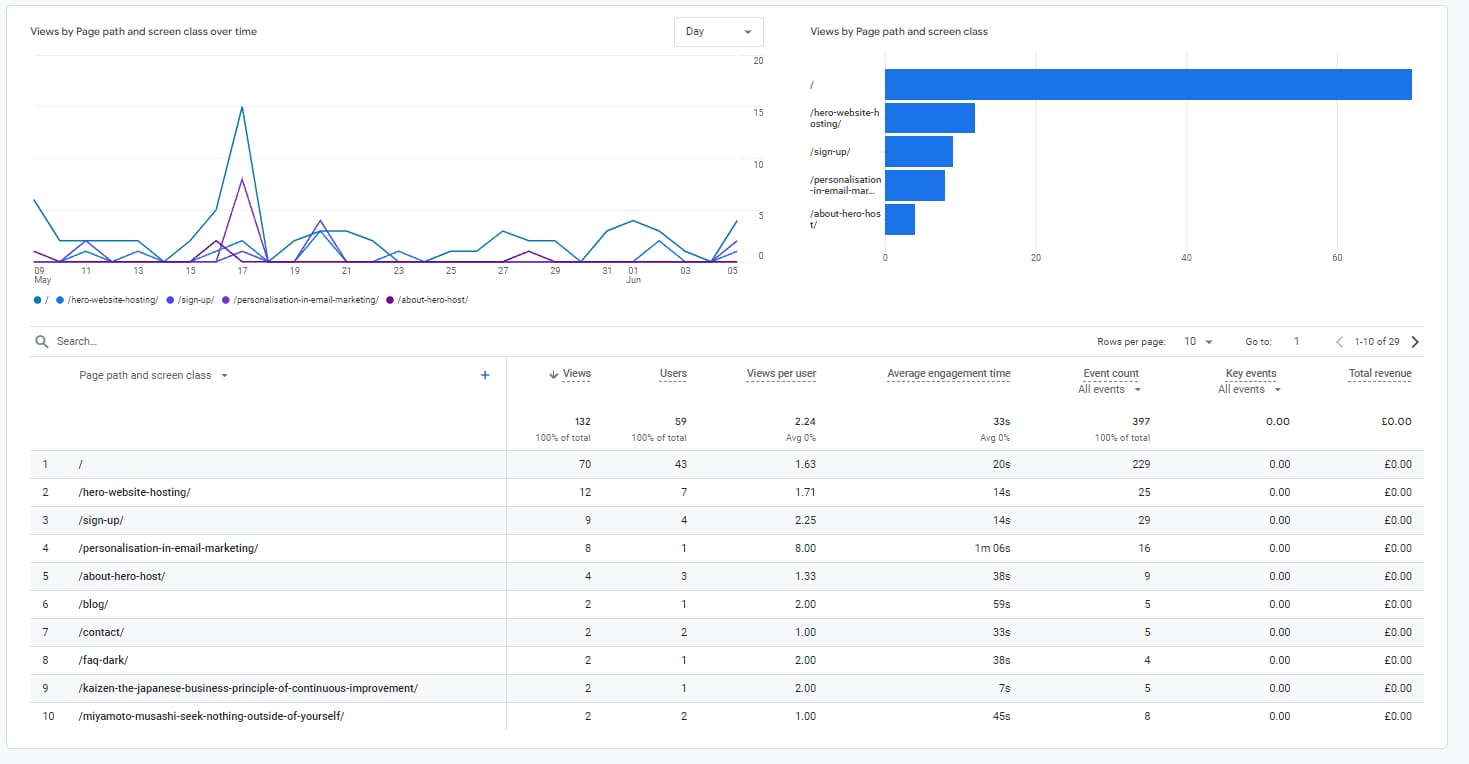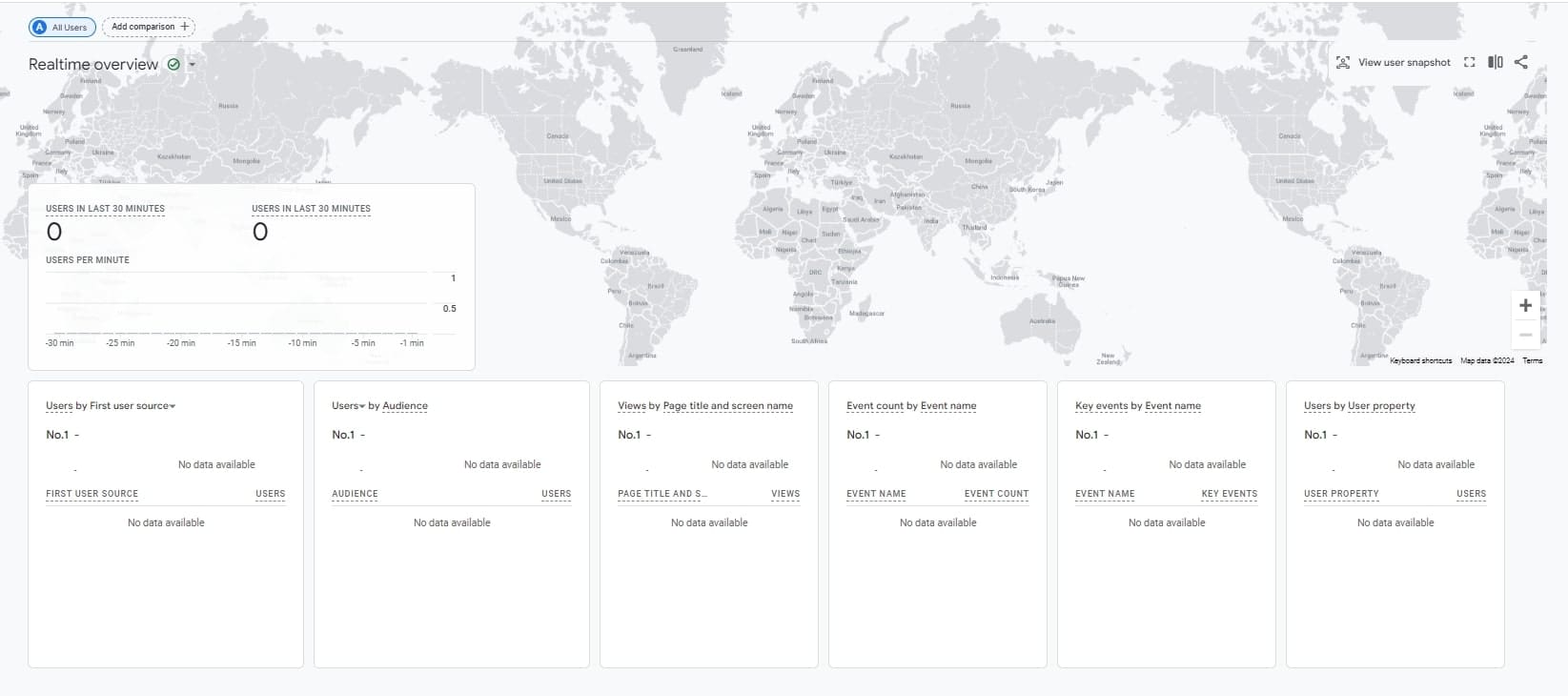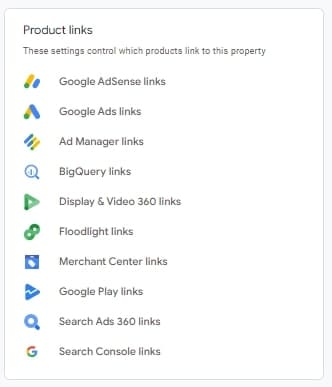
An Introduction To Google Analytics
In the ever-evolving landscape of digital marketing, data-driven decision-making has become crucial for businesses seeking to optimise their online presence. Google Analytics (GA) stands out as a powerful tool that helps organisations understand their audience, track marketing performance, and improve overall website functionality. This blog will provide an introduction to Google Analytics, covering its overview, importance in digital marketing, and key features and capabilities.
Overview of Google Analytics
Google Analytics is a free web analytics service offered by Google that tracks and reports website traffic. It was launched in November 2005 and has since become one of the most widely used web analytics tools worldwide. GA provides insights into user behaviour, helping businesses understand how visitors interact with their websites, what content they engage with, and how they navigate through the site.
At its core, Google Analytics collects data through a JavaScript tracking code that is placed on each page of a website. This code tracks various activities, such as page views, clicks, and conversions, and sends this data back to Google’s servers for processing. The processed data is then presented in the form of reports and dashboards, which can be customised to meet specific business needs.
GA offers a wealth of information, including data on user demographics, acquisition channels, behaviour flow, and conversion rates. By leveraging this data, businesses can make informed decisions to enhance user experience, optimise marketing strategies, and ultimately drive growth.
Importance in Digital Marketing
Sidenote: we will cover the really important ones in their own blogs.
In the digital marketing realm, understanding user behaviour and campaign performance is critical. Google Analytics plays a pivotal role in providing the necessary insights to achieve these goals. Here are some reasons why GA is indispensable in digital marketing:
Data-Driven Decision Making:
GA enables marketers to make informed decisions based on real-time data. By analysing user behaviour, traffic sources, and conversion paths, marketers can identify what works and what doesn’t, allowing them to optimise their strategies accordingly.
Performance Tracking:
With Google Analytics, businesses can track the performance of their marketing campaigns across various channels, including organic search, paid search, social media, and email marketing. This comprehensive view helps marketers allocate resources effectively and maximise return on investment (ROI).
Understanding Audience Behavior:

This image shows the audience engagement reports – it showcases the most important pages for your audience, which can be a handy metric for knowing what type of content your audience likes to consume.
GA provides detailed insights into how users interact with a website. Marketers can see which pages are most popular, how long visitors stay on the site, and where they drop off. This information is invaluable for improving user experience and increasing engagement.
Segmentation and Targeting:
Google Analytics allows for advanced segmentation of data, enabling marketers to analyse specific audience groups based on demographics, behaviour, and acquisition channels. This segmentation helps in creating targeted marketing campaigns that resonate with different segments of the audience.
Conversion Rate Optimisation:
GA tracks user journeys from initial interaction to conversion. By understanding the steps users take before converting, marketers can identify bottlenecks and optimise the conversion process, leading to higher conversion rates.
Key Features and Capabilities
Google Analytics is packed with features designed to provide comprehensive insights into website performance and user behaviour. Here are some of the key features and capabilities that make GA a powerful tool for digital marketers:
Real-Time Reporting:

The real-time reports shows not only how many users are on your site but where from alongside other useful insights.
Real-time reports allow businesses to monitor activity on their website as it happens. This feature is particularly useful during marketing campaigns or product launches, as it provides immediate feedback on performance.
Audience Reports:
These reports provide detailed information about the visitors to a website, including their demographics, interests, geographic location, and device usage. Understanding the audience helps businesses tailor their content and marketing efforts to meet user needs.
Acquisition Reports:
Acquisition reports show how visitors arrive at a website, whether through organic search, paid search, social media, referral traffic, or direct visits. This information helps marketers assess the effectiveness of different marketing channels and optimise their strategies.
Behaviour Reports:
Behaviour reports offer insights into how users interact with a website, including which pages they visit, how long they stay, and their navigation paths. This data is crucial for identifying popular content, improving site structure, and enhancing user experience.
Conversion Tracking:
GA’s conversion tracking capabilities allow businesses to set up and monitor goals, such as form submissions, product purchases, or newsletter sign-ups. By tracking these conversions, marketers can measure the effectiveness of their campaigns and make data-driven adjustments.
Custom Dashboards and Reports:
Google Analytics enables users to create custom dashboards and reports tailored to their specific needs. This flexibility allows businesses to focus on the metrics that matter most to them and present data in a way that is easy to understand and act upon.
E-commerce Tracking:
For online retailers, GA offers robust e-commerce tracking features that provide insights into product performance, sales data, and customer behaviour. This information is essential for optimising product listings, pricing strategies, and promotional efforts.
Integration with Other Tools:

This shows the wide range of integrations you can have allowing easy access to data wherever you need it.
Google Analytics seamlessly integrates with other Google tools, such as Google Ads, Google Tag Manager, and Google Search Console, as well as third-party platforms like CRM systems and marketing automation tools. This integration ensures a holistic view of marketing performance and streamlines data management.
Event Tracking:
Event tracking allows businesses to monitor specific interactions on their website, such as button clicks, video plays, or downloads. This granular data helps in understanding user engagement and improving website functionality.
Enhanced Measurement with GA4: The latest version, Google Analytics 4 (GA4), introduces enhanced measurement capabilities, including cross-platform tracking, more advanced machine learning models for insights and predictions, and improved data privacy features. GA4 is designed to provide a more comprehensive view of the customer journey across different devices and platforms.
Conclusion
Google Analytics is an indispensable tool for businesses seeking to thrive in the digital age. By providing detailed insights into user behavior, traffic sources, and marketing performance, GA empowers marketers to make data-driven decisions that drive growth and improve user experience. With its robust features and capabilities, Google Analytics continues to be a cornerstone of effective digital marketing strategies. Whether you’re new to GA or looking to deepen your understanding, harnessing the power of this tool can significantly enhance your digital marketing efforts.




















